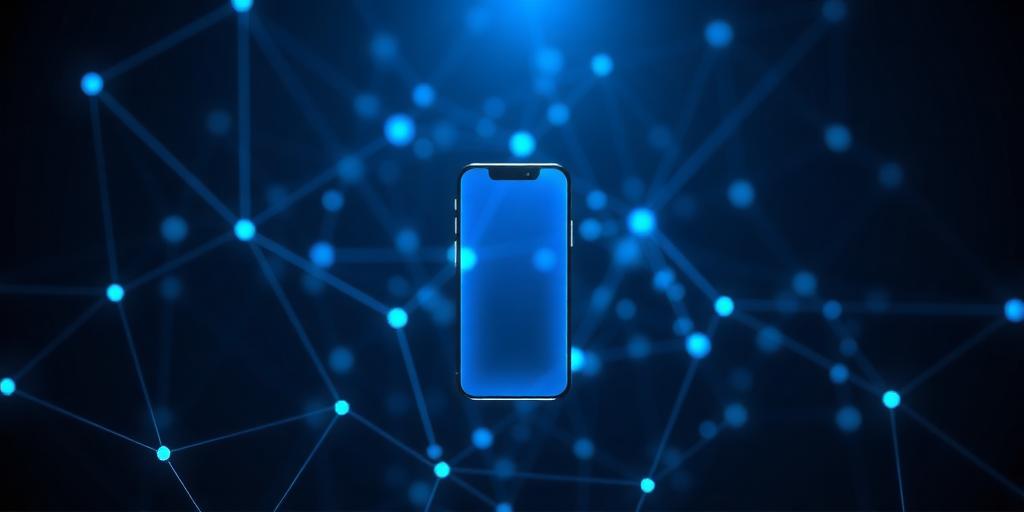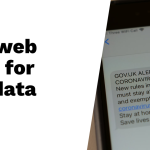The dark web is a hidden space where stolen personal data, including phone numbers, is bought and sold by criminals. Your phone number can end up leaked through things like company breaches, phishing attacks, or malware infections. You don’t need to dive into the dark web yourself to check if your number is exposed. Instead, use trusted tools like NordPass Data Breach Scanner or Experian’s Free Dark Web Scan that search thousands of dark web sources for your info and tell you if it’s found. If your number shows up, be cautious with calls and messages, update passwords immediately, enable app-based multi-factor authentication, and alert your mobile provider to protect yourself from scams or SIM swapping.
Table of Contents
- Understanding the Dark Web and Phone Number Risks
- How Phone Numbers Get Leaked on the Dark Web
- Ways to Check if Your Phone Number Is Exposed
- Top Tools to Scan for Phone Number Leaks
- Risks of Having Your Phone Number on the Dark Web
- Steps to Take If Your Phone Number Is Compromised
- Why You Can’t Remove Your Number from the Dark Web
- Preventing Your Phone Number from Being Leaked
- Extra Tips to Protect Your Phone Number Online
- Frequently Asked Questions
Understanding the Dark Web and Phone Number Risks

The dark web is a hidden part of the internet that regular search engines don’t index and can only be accessed using special software like Tor. It’s often a hub for illegal activities, including the buying and selling of stolen personal data such as phone numbers, emails, and payment information. Phone numbers hold significant value for cybercriminals because they can be used in a range of malicious acts like scams, identity theft, or SIM swapping attacks, where someone takes control of your phone number to access your accounts. Many people don’t realize their phone numbers may already be exposed or circulating on the dark web without their knowledge. This data is usually sold in bulk on underground marketplaces or forums, often linked with other personal details, which raises the risk of fraud. Criminals exploit leaked phone numbers to send phishing messages, spam, or to bypass SMS-based security checks. Since the dark web operates anonymously, tracking down or removing stolen data is nearly impossible. Being aware of these risks is an important first step toward monitoring your phone number and protecting it from potential abuse.
How Phone Numbers Get Leaked on the Dark Web
Phone numbers often end up on the dark web through several common but overlooked ways. One major source is data breaches involving companies, websites, or apps where you’ve shared your number. When these services are hacked, your phone number can be stolen along with other personal information. Malware or spyware installed on your devices may also silently collect your phone number and send it to cybercriminals. Phishing attacks are another method: fake emails or messages trick users into revealing their phone number and login details. Additionally, data scraping tools scan public social media profiles and websites for phone numbers, gathering them to be sold illegally. Physical risks exist too; lost or stolen devices and documents can expose your number to criminals. Using unsecured Wi-Fi networks can allow attackers to intercept data you send, including phone numbers. Weak security on third-party services or apps that collect and share phone numbers without clear consent further increase the risk of exposure. Because phone numbers are often tied to email addresses or account credentials, they become valuable for fraud schemes like SIM swapping or identity theft. Once leaked, phone numbers spread rapidly across dark web marketplaces and forums, making it nearly impossible to contain their exposure.
Ways to Check if Your Phone Number Is Exposed
Accessing the dark web directly to check if your phone number has been leaked is not recommended due to the risks and complexity involved. Instead, you can rely on trusted dark web monitoring tools that scan thousands of sources where stolen data is traded. Typically, these tools allow you to enter your phone number into a search field, then they scan various dark web databases and forums to see if your number appears in any data breaches.
Several reputable services offer this kind of monitoring. NordPass Data Breach Scanner, for example, checks both phone numbers and emails for exposure. Experian provides a free one-time dark web scan covering phone numbers, emails, and Social Security numbers. Trend Micro’s Data Leak Checker is another option that looks for phone number leaks on the dark web. Have I Been Pwned, widely known for email breach checks, is expanding its coverage to include phone numbers as well.
PureVPN offers dedicated dark web monitoring specifically for phone numbers, while Google’s Dark Web Report feature, available through the Google app on Android devices, monitors linked accounts for any signs of compromise. Keeper Security also provides a free dark web scan that checks for leaked credentials including phone numbers.
Using these tools is straightforward: you enter your phone number, and the service will alert you if it finds your data in any breach. This approach helps you avoid the dangers of navigating the dark web yourself while keeping you informed. Regularly running these scans can help you stay ahead of potential misuse of your phone number and take timely action if needed.
Top Tools to Scan for Phone Number Leaks
Several reliable tools can help you quickly find out if your phone number has been leaked on the dark web. NordPass Data Breach Scanner is user-friendly and offers fast detection of phone number breaches, making it a good starting point. Experian provides a free, one-time dark web scan that covers phone numbers along with other identity data like Social Security numbers and emails. Trend Micro’s Data Leak Checker scans both the internet and dark web sources, giving you a broader view of exposure. Have I Been Pwned is well-known for email breach notifications but has been expanding its capabilities to include phone numbers, adding to its reliability. For ongoing protection, PureVPN offers continuous dark web monitoring focused specifically on phone numbers, which is useful if you want regular updates. Android users can benefit from Google Dark Web Report, which integrates with Google accounts to send alerts if your phone number appears in any leaks. Keeper Security also provides a free scan for leaked credentials including phone numbers, helping you check multiple data types at once. These tools vary: some offer one-time scans while others provide continuous monitoring. Using a combination of these reputable tools can give you a more comprehensive picture of your phone number’s exposure without risking false alarms or scams.
| Tool Name | Type of Scan | Key Features | Availability |
|---|---|---|---|
| NordPass Data Breach Scanner | One-time & Ongoing | User-friendly, detects phone number breaches quickly | Free & Paid versions |
| Experian Free Dark Web Scan | One-time | Covers phone numbers, Social Security numbers, emails | Free |
| Trend Micro Data Leak Checker | One-time | Scans internet & dark web for phone number exposure | Free |
| Have I Been Pwned | Ongoing | Reliable breach notifications, expanding phone number checks | Free |
| PureVPN Dark Web Monitoring | Ongoing | Dedicated phone number leak detection | Paid |
| Google Dark Web Report | Ongoing | Dark web reports linked to Google Android accounts | Free |
| Keeper Security Free Dark Web Scan | One-time | Checks leaked credentials including phone numbers | Free |
Risks of Having Your Phone Number on the Dark Web

Having your phone number leaked on the dark web exposes you to several serious risks. One of the most common problems is receiving a flood of scam calls and phishing texts designed to steal more personal information or trick you into financial loss. Criminals may also use your number to perform SIM swapping attacks, where they hijack your mobile line to bypass SMS-based two-factor authentication and gain access to your bank, email, or social media accounts. This can lead to identity theft if your phone number is combined with other leaked data like your name or address. Beyond financial fraud, your number could be used for blackmail or harassment, damaging your peace of mind and potentially harming your reputation if misused publicly. Recovering from these issues often requires significant time, money, and sometimes legal help, as the damage to your privacy and security can have long-lasting effects.
Steps to Take If Your Phone Number Is Compromised
If you discover that your phone number has been leaked on the dark web, start by ignoring and blocking any suspicious calls or messages asking for personal information. Avoid responding to unsolicited offers or requests related to your number, as these can be attempts to scam or steal more data. Immediately change passwords on all accounts linked to your phone number, especially those with financial or personal details. Switch on multi-factor authentication (MFA), but choose app-based or hardware token options instead of SMS-based MFA to reduce risk from SIM swapping. Contact your mobile carrier right away to report the issue; ask about adding extra security measures like account PINs or passwords to prevent unauthorized access. Keep a close watch on your bank accounts and credit reports for unusual activity, as fraudsters often target financial information after obtaining phone numbers. Enrolling in identity theft protection services that include dark web monitoring can provide ongoing alerts and support. If you encounter any fraud or suspicious activity, report it promptly to your financial institutions and local authorities. Inform friends and family if your number is being used for scams to help them avoid falling victim. Lastly, keep detailed records of every step you take, including communications and changes made, as this documentation can be important for future investigations or disputes.
- Ignore and block suspicious calls or messages that request personal information.
- Do not respond to unsolicited requests or offers related to your phone number.
- Change passwords on all accounts linked to your phone number immediately.
- Enable multi-factor authentication using apps or hardware tokens instead of SMS-based MFA.
- Contact your mobile carrier to report the issue and request security features such as account PINs.
- Monitor financial accounts and credit reports for unusual or unauthorized activity.
- Consider enrolling in identity theft protection services with dark web monitoring.
- Report any fraud or suspicious activity to authorities and your financial institutions.
- Alert friends and family if your number is used for scams to prevent further harm.
- Keep records of all actions taken for future reference or investigations.
Why You Can’t Remove Your Number from the Dark Web
The dark web operates without any central authority or control, which means there is no single place to request the removal of your phone number once it appears. When data is leaked, it quickly gets copied and shared across multiple sites and users, making it nearly impossible to erase completely. Even if some instances are deleted, backups and other hidden copies often remain untouched. Trying to contact those who post stolen data or run these marketplaces is risky and usually ineffective, as criminals have no reason to remove information that they profit from. Legal actions against dark web operators are complicated and slow, offering little immediate help for individuals. Because of this reality, the focus should shift from trying to remove your phone number to limiting potential damage. Using monitoring tools and taking preventive security steps is a more practical approach to protect yourself. Understanding that leaked data stays out there permanently helps set realistic expectations and encourages ongoing vigilance rather than futile attempts at erasure.
Preventing Your Phone Number from Being Leaked
Protecting your phone number starts with using strong, unique passwords for every online account. Managing these passwords with a reliable password manager helps reduce the risk of reuse or weak credentials that hackers can exploit. Keeping your devices, apps, and operating systems updated is also essential, as security patches fix vulnerabilities that could otherwise be used to steal your data. Be mindful of where you share your phone number; avoid posting it on social media, forums, or public websites where data scrapers can collect it. Always verify the source before clicking on links or providing your number, since phishing attempts are common and often aim to trick you into revealing sensitive information. When using public or unsecured Wi-Fi, connect through a VPN to encrypt your internet traffic and prevent eavesdropping. For added security, enable app-based multi-factor authentication instead of SMS-based MFA whenever possible, as SMS can be intercepted or targeted by SIM swap attacks. Regularly review the privacy settings on your apps and online accounts to limit who can see your phone number and how it’s used. Avoid downloading apps from untrusted sources, since malicious apps may collect and leak your number without your knowledge. Make it a habit to monitor your accounts and use dark web scanning tools to detect any leaks early, allowing you to act before damage occurs. Finally, stay informed about common cyber threats targeting phone numbers and online identities to better recognize and avoid potential scams or attacks.
Extra Tips to Protect Your Phone Number Online
Regularly running free dark web scans from trusted services helps you catch leaks early. Keep an eye out for sudden increases in spam calls or suspicious texts, as these may indicate your number has been exposed. Learn to spot common phone scams, like verification code requests or urgent messages claiming to be from banks, and avoid responding to them. If you face ongoing fraud or harassment, changing your phone number might reduce risks, but it’s not a guaranteed fix since other personal data could still be compromised. Removing your number from public directories and data broker sites where possible lowers your exposure. Using burner or secondary numbers for online sign-ups keeps your main number safer. Protect your email accounts carefully, since they are often linked to your phone number and can be a gateway for attackers. Avoid posting your phone number in public forums, comments, or social media to limit data scraping. Be cautious of unsolicited calls or texts asking for personal information or verification codes. Finally, secure your mobile device with PINs, passwords, or biometric locks to prevent unauthorized access that could lead to further breaches.
Frequently Asked Questions
1. How can I check if my phone number is on the dark web without technical skills?
You can use reputable online dark web monitoring tools that allow you to input your phone number and scan databases for any leaks. These services simplify the process without needing advanced technical knowledge.
2. What signs might indicate my phone number has been exposed on the dark web?
If you start receiving unusual spam calls, phishing attempts, or identity verification requests you never initiated, these could be signs your number has been compromised and possibly leaked.
3. Are there safe ways to search the dark web myself to find my phone number?
Accessing the dark web directly can be risky and complicated. Instead, it’s safer to rely on specialized monitors or data breach notification services tailored to check for leaked personal information, including phone numbers.
4. How often should I check if my phone number has been leaked online?
It’s a good idea to check periodically, like every few months, or anytime you notice suspicious activity linked to your phone number. Regular checks help you respond quickly if your information is found.
5. What steps should I take if I discover my phone number has been leaked on the dark web?
If your number is leaked, update your security settings on accounts using your phone for verification, consider changing your phone number if risks persist, and stay alert for suspicious messages or calls to prevent further misuse.
TL;DR The dark web is a hidden part of the internet where stolen phone numbers are traded and misused for scams, identity theft, and SIM swapping. Phone numbers can leak through data breaches, phishing, malware, and social media scraping. You don’t need to access the dark web itself; instead, use trusted tools like NordPass, Experian, Trend Micro, or Google’s dark web reports to check if your number is compromised. If leaked, expect spam, fraud attempts, or account hacks. Since removal from the dark web isn’t possible, focus on protecting yourself by changing passwords, enabling app-based two-factor authentication, working with your carrier on account security, and monitoring your accounts regularly. Avoid oversharing your number, keep software updated, and stay vigilant against scams to reduce risk.





